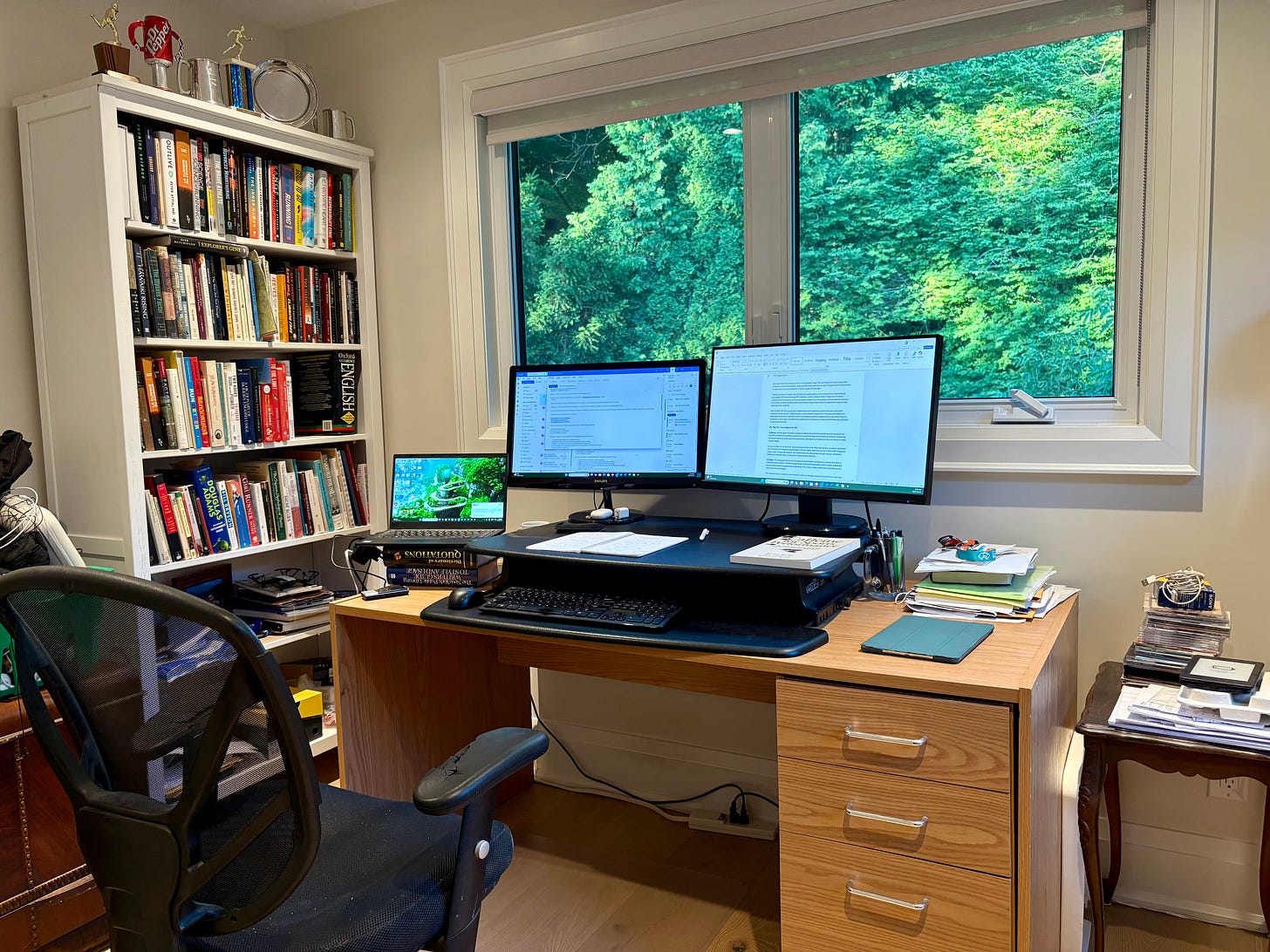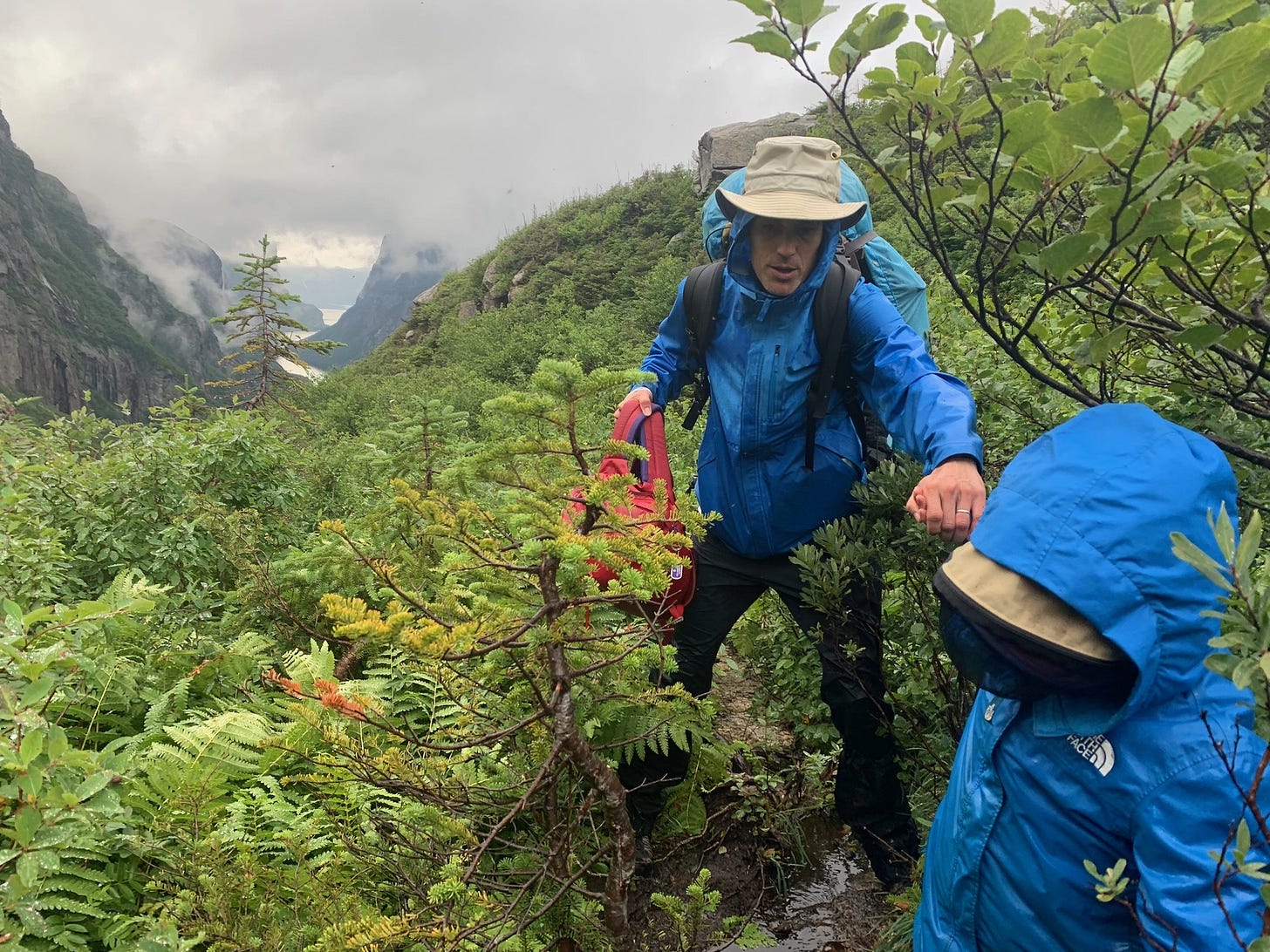Chasing Blank Pages and Blank Maps
21 Questions with bestselling author Alex Hutchinson, on curiosity, endurance, and the creative urge to explore
If you’ve ever wondered how far you can push yourself—whether in a marathon, a wilderness trek, or even just a brutally hard workout—you’ll want to meet Alex Hutchinson.
A science journalist based in Toronto, Alex has built his career exploring the outer edges of human performance: fitness, endurance sports, and the irresistible pull of the outdoors. He’s the longtime author of Outside magazine’s popular Sweat Science column, a former columnist for Runner’s World, and a frequent contributor to The Globe and Mail, Canadian Running, and outlets ranging from The New York Times to The New Yorker. Along the way, he’s picked up a National Magazine Award, a Lowell Thomas Award, and a devoted readership that turns to him for insights into how our bodies and minds perform under pressure.
Alex’s latest book, The Explorer’s Gene: Why We Seek Big Challenges, New Flavors, and the Blank Spots on the Map, dives into the science of why humans crave exploration—and what happens when we answer that call. He’s also the author of the New York Times bestseller Endure: Mind, Body, and the Curiously Elastic Limits of Human Performance, as well as two earlier books on fitness and innovation. Before turning full-time to writing, he earned a Ph.D. in physics from Cambridge, did postdoctoral research for the NSA, competed internationally as a middle-distance runner, and even moonlighted as a jazz saxophonist.
In this round of 21 Questions, Alex talks about the worst advice he ever received, the quirky role that mint tea plays in his writing routine, and why he needs three monitors to get any writing done.
—Panio
21 Questions with Alex Hutchinson
1. I couldn’t have written my last book without… the pressure and guilt of being a year past my deadline.
2. Hemingway wrote standing up; Edith Wharton, lying down. What are your quirks? I’m addicted to multiple monitors. I have three on my desk at home. When I’m traveling, I can get away with my laptop plus a portable monitor. But if I’m reduced to a single screen, I just read papers or answer emails instead of trying to write. That probably says something bad about how my brain works.
3. Do you read your reviews? Yes, against my better instincts. I can generally absorb reviews as constructive criticism. I managed to swear off online comments a long time ago, thankfully, and I’m increasingly careful about how I interact with social media.
4. What income streams make up your writing business? I spend about half my time doing recurring magazine and newspaper work, mostly for Outside these days. That nominally accounts for about half my income and is steady. Books are the other big piece, but are feast-or-famine. Speaking chips in here and there.
5. Is there a book you wish you’d written? The Code of the Woosters, by P. G. Wodehouse. Heck, I’d be happy if I’d written a single page of it, or even just one simile.
6. Have any tech tools made your job easier? Automatic transcription (I use the function embedded in Word) has been a massive timesaver, though I do wonder about what’s lost when you don’t spend hours marinating in your interview recordings.
7. What new tools or distribution channels do you want to try? I’m definitely Substack-curious. Video also seems fun, but with a steeper learning curve and less obvious payoff as a writer.
8. How has AI changed your writing process? It hasn’t yet, though I’m sure it eventually will. I generally like the process of writing, even wandering down research dead-ends and painstakingly searching for the right word, so I’m not super motivated to figure out shortcuts.
9. What’s the best piece of professional advice you’ve ever received? My science journalism prof at Columbia, Marguerite Holloway, said freelancers should spend a third of their time doing stuff that pays the bills, a third doing stuff they love, and a third doing “strategic” work that positions them for where they want to be in the future. I’ve always thought that final third was really important and underappreciated.
10. And the worst? To be a journalist in this brave new media world, you need to learn to code in HTML.
11. What is the one piece of advice you would give to recent graduates that want to make a living as a writer? Nail the basics: deadline, word count, format, topic. We all want to write something brilliant, but the best way to pay the rent is to make editors’ lives easier so they’re eager to work with you again.
12. Whose career do you most admire and why? David Epstein, because his interests and trajectory are similar enough to mine to feel relatable, but way better! He’s got a new book coming out next year, Inside the Box, so I’m looking forward to reading it to find out what I’ll be trying to emulate three years from now.
13. Foreign rights, audio rights, film rights: which have been the most valuable to you? Zac Efron’s production company had a shopping agreement for Endure, but it didn’t pan out… so it’s foreign rights for me (and no opportunity to meet Zac), sadly.
14. How did you find your agent? A friend was kind enough to introduce me to a couple of agents—both of whom rejected me, but one of whom pointed me in the direction of my current agent, who has turned out to be the ideal fit.
15. Coffee, tea, or something stronger? Mint tea made from mint plucked from the back yard. I like it because it takes a long time to make.
16. How are you using social media to grow your audience? Not very well, to be honest. A decade ago it was a huge driver for me, but these days I’m spread across five platforms and not really connecting on any of them. It’s something I need to figure out, or else back away from.
17. How many drafts before you show your editor? I generally finish my first draft convinced that this is exactly the way it was meant to be. I’m always wrong—and I know it!—but I rely on my editors to tell me why.
18. Can you describe your ideal workday? Up at 6:30 am, go for a run, get my kids breakfasted and off to school, shower, at my desk by 9:00 am. Spend the morning writing. After lunch, do research, read papers, make calls, run errands. Spend an hour before dinner dealing with email. Then clock out and relax for the evening.
19. How does that compare to your actual workday? Basically the opposite of what I wrote above. I do go for a run first thing, but then I spend most of the day fussing with emails that I should have answered weeks or months ago. Then I realize I have exactly 17 minutes before I need to cook dinner, so I churn out a thousand words at the speed of light.
20. What do you wish you’d known when you were starting out? Actually, I think ignorance was bliss. You’d never set out to be a writer if you really knew what it would entail—but I’m definitely glad I was dumb enough to take the leap.
21. What is your new book about? It’s about why we’re drawn to explore new places and new ideas, what we get out of it, what can go wrong, and how we can do it better. It’s basically my attempt to understand why I love this career so much.
✍️ Save Your Spot!
We’ve got some fantastic workshops and behind-the-scenes publishing AMAs in the works. These live sessions are open to all Author Insider members and designed to help you level up your writing, publishing, and career strategy. Don’t miss the chance to learn directly from industry insiders and bestselling authors.
Thursday, September 18th, at 11 a.m. ET: The Business of Ghostwriting with Will Storr
Bestselling author of Selfie and The Science of Storytelling, Will Storr pulls back the curtain on ghostwriting. Learn everything from landing gigs to capturing voices, negotiating fees, and navigating NDAs.
Thursday, September 25th, at 12 p.m. ET: AMA with Charles Duhigg
Pulitzer Prize–winning reporter and author of The Power of Habit and Supercommunicators, Charles Duhigg joins us for an open AMA on writing, research, and building a bestselling career.
👉 These sessions are open to all members—sign up here if you haven’t already, and don’t miss the chance to join us live.



